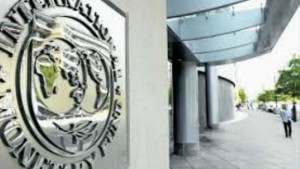 It is not a good economic report for St. Kitts and Nevis from the International Monetary Fund (IMF) following a three-week visit of officials from the Washington-based financial institution.
It is not a good economic report for St. Kitts and Nevis from the International Monetary Fund (IMF) following a three-week visit of officials from the Washington-based financial institution.
In releasing its Article IV report on Friday, the IMF said the growth rate for St. Kitts and Nevis contracted, the overall fiscal surplus deteriorated, the overall balance remains in deficit, the current account deficit widened significantly, the external current account deficit should remain large and CBI inflows are expected to taper off.
The IMF said the economy posted a modest 3.2 percent in 2016, compared to 4.9 percent in 2015 and 5.12 percent in 2014.
“The overall fiscal surplus, at 4.2 percent of GDP, deteriorated compared to 2015, owing mainly to lower CBI receipts. The underlying overall balance (that is, the overall balance excluding SIDF grants, CBI-related receipts and due diligence expenditure) remains in deficit, around 3.3 percent of GDP. A combination of lower CBI-budgetary receipts and a larger trade deficit resulted in a significant widening of the current account deficit. At the same time, public debt fell further, projected to reach the 60 percent ECCU debt-to-GDP target by 2018, ahead of ECCU peers,” said the report.
The IMF said the medium-term outlook incorporates conservative assumptions on future CBI flows. While the Eastern Caribbean Central Bank is projecting a growth rate of 3.82 percent in 2017, the IMF said its assessment indicates that growth is projected to be 2.7 percent for 2017 and is expected to average around 3 percent in the medium term.
“The projected slowdown in construction would be offset by public investment on infrastructure and higher tourism growth as source market growth accelerates and new tourism facilities come on stream in 2017-19. The external current account deficit should remain large with CBI inflows tapering off,” said the IMF and pointed out that risks to the medium-term outlook are broadly balanced.
“Key risks include further delays in completing the debt-land swap and a sharp drop in CBI inflows due to more acute competition and global security concerns. Other negative risks include a stronger U.S. dollar, a tighter financial environment, a more severe Zika epidemic, and a major natural disaster,” said the IMF.
It also said that loss of correspondent banking relationships (CBRs) could add to challenges.
“Softer global climate change policy may exacerbate natural-disaster risks. On the upside, stronger CBI inflows (from ongoing program reforms and tougher immigration policies in the United States on other countries) and weaker oil-prices could support faster growth,” the IMF said.
